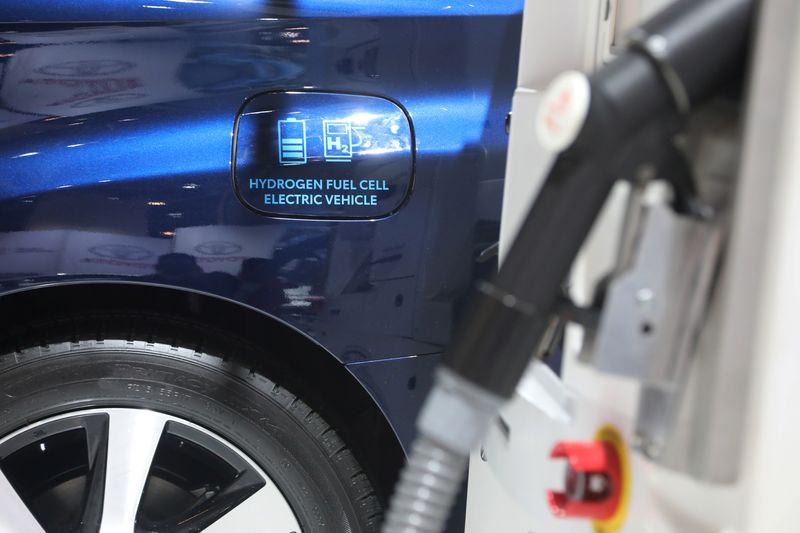By Daniel Leussink
TOKYO (Reuters) - Toyota Motor (NYSE:TM) will focus on selling hydrogen-powered trucks and cars in Europe and China, as part of a push to sell 200,000 of these vehicles by 2030, executives said on Tuesday. The decision marks a shift in focus for the Japanese automaker, a major backer of hydrogen fuel-cell vehicles as an alternative to electric vehicles. Until now Toyota's focus has been on passenger cars and the North American market, an approach that had stalled.
The strategy update was the first by Toyota since it set up a separate hydrogen-focused unit this month to expand the application of fuel-cell technology into wider applications, including industrial power generation and commercial trucks.
Toyota sold just over 3,900 fuel cell vehicles in 2022, less than half of 1% of its global sales of around 9.5 million vehicles.
"This may be a strange way of putting it, but 200,000 is not a big number," Toyota's Chief Technology Officer, Hiroki Nakajima told reporters. "We believe this number and more can be achieved."
By focusing on China and Europe, where hydrogen production and demand is higher, Toyota aims to bring costs down, Nakajima said, adding that the automaker would also look to strengthen ties with other companies.
In May, Toyota and Daimler (OTC:MBGAF) Truck Holding said they had agreed to cooperate on hydrogen technology and reached a preliminary deal to combine their truck businesses in Japan.
Toyota launched its dedicated fuel-cell unit, the Hydrogen Factory, with 1,350 staff earlier this month.
A fuel cell vehicle uses an electric motor like an EV but draws power from a fuel stack where hydrogen is separated by a catalyst to produce electricity.
Consumer adoption of fuel-cells has been limited by high costs and a limited network of fuelling stations, but hydrogen-powered vehicles can refuel quickly and have a long range.
Toyota launched the first fuel-cell vehicle nearly a decade ago with the Mirai, a niche car it has marketed in California.
In Japan, where the government has backed hydrogen as an energy-security alternative, Toyota could work with local governments to transition diesel-powered fleets of vehicles such as ambulances and garbage trucks to fuel-cell technology, Nakajima said.

Toyota said it expects the global market for fuel cells to grow to around $35 billion by 2030, up more than 15-fold from 2020 levels, citing a forecast from market research firm Fuji Keizai.
Honda Motor is targeting annual sales of around 60,000 vehicles with a fuel-cell system jointly developed with General Motors (NYSE:GM) in 2030, it said in February.